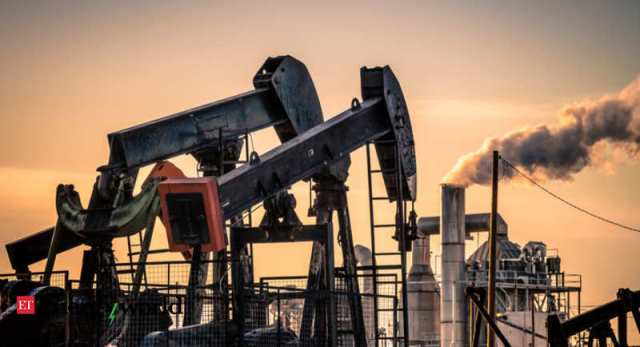Oil traded near a seven-week high as supply risks from a storm in the Gulf of Mexico and falling U.S. stockpiles were countered by a weak market outlook from OPEC in 2020.
Futures in New York were little changed after settling above $60 a barrel July 10 for the first time since May. Major producers from BP Plc to Chevron Corp. have evacuated crew from offshore installations, halting a third of the Gulf’s output because of the storm. A fourth weekly draw in U.S. crude stockpiles and signs that the Federal Reserve is prepared to cut interest rates also supported prices.
Oil has been rallying in the past week, with Iranian tensions escalating after the British navy intervened to stop the country from blocking an oil tanker leaving the Persian Gulf. U.S. President Donald Trump vowed July 10 to impose more sanctions on Iran and accused it of violating the nuclear accord that he withdrew from last year. Still, there are lingering concerns over a weak global economy and its impact on demand for fuels.
OPEC, which agreed just a week ago to continue supply restraints into early 2020, said that it’s pumping about 560,000 barrels a day more crude than will be needed next year, when supplies from the group’s rivals will grow by more than twice as fast as world oil demand.
“The break above $60 is likely to attract some additional short-term momentum, but if the storm passes in the Gulf of Mexico, we could see that fade away as the focus returns to demand worries,” said Ole Sloth Hansen, head of commodity strategy at Saxo Bank A/S in Copenhagen. “If the economic outlook has deteriorated so much that the Federal Reserve feels the need for stimulus, it’s hard to see fundamental justification for higher prices.”
West Texas Intermediate crude closed at the highest level since May 22 on July 10.
Brent for September added 6 cents to $67.07 a barrel on the ICE Futures Europe Exchange. It climbed 4.4% to $67.01 on July 11, the highest close since May 29. The global benchmark crude traded at a $6.47 premium to WTI for the same month.
Gulf of Mexico operators have shut 602,715 barrels a day of oil production ahead of the storm, the Bureau of Safety and Environmental Enforcement said in a notice. Chevron said July 9 it began closing five of its platforms and will start moving out all associated personnel. Royal Dutch Shell Plc and BP have also evacuated workers.
The Energy Information Administration reported July 10 that U.S. crude stockpiles fell by 9.5 million barrels last week to the lowest in almost three months. That compared with the median estimate in a Bloomberg survey for a 2.9 million-barrel decline.













